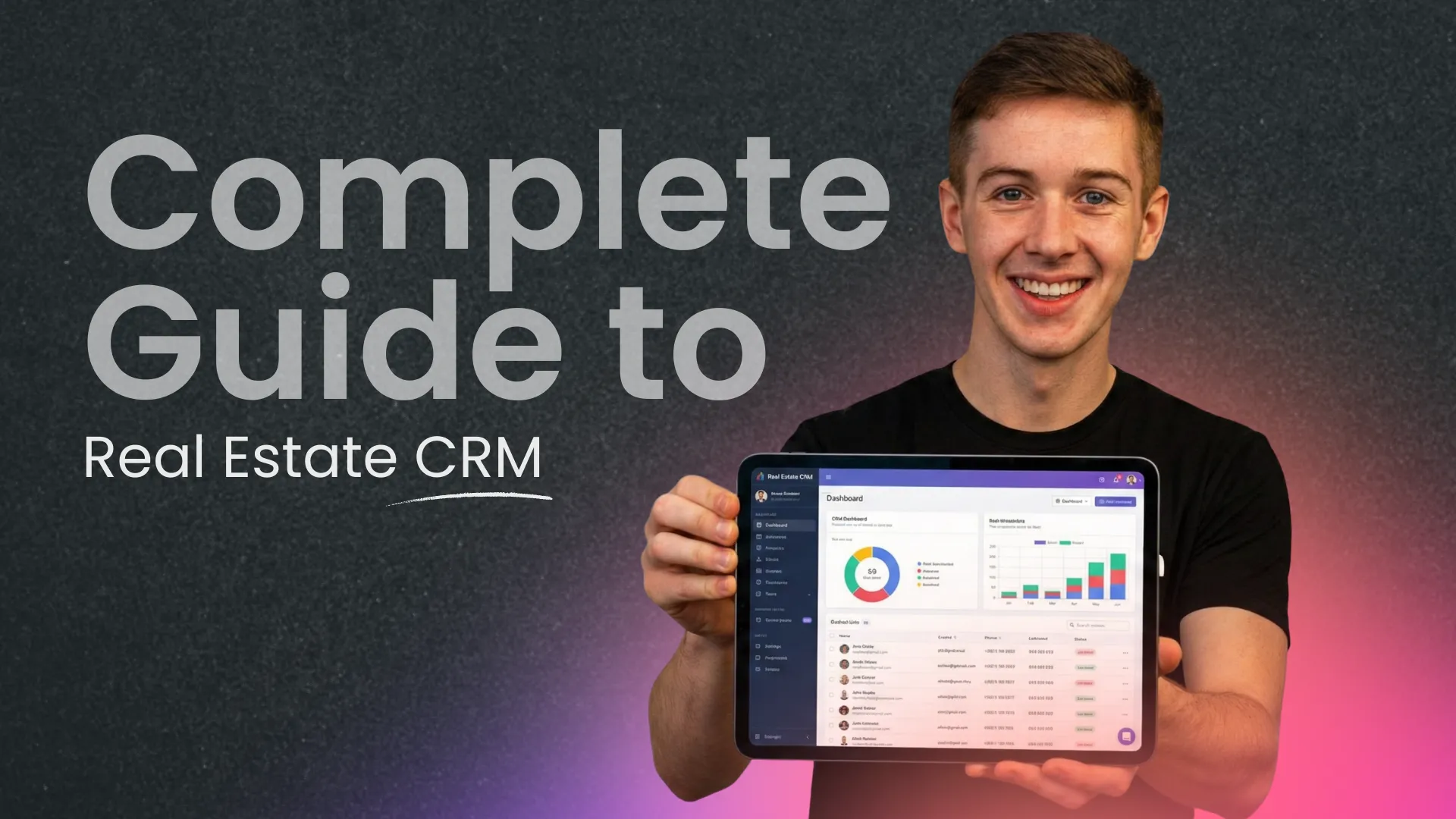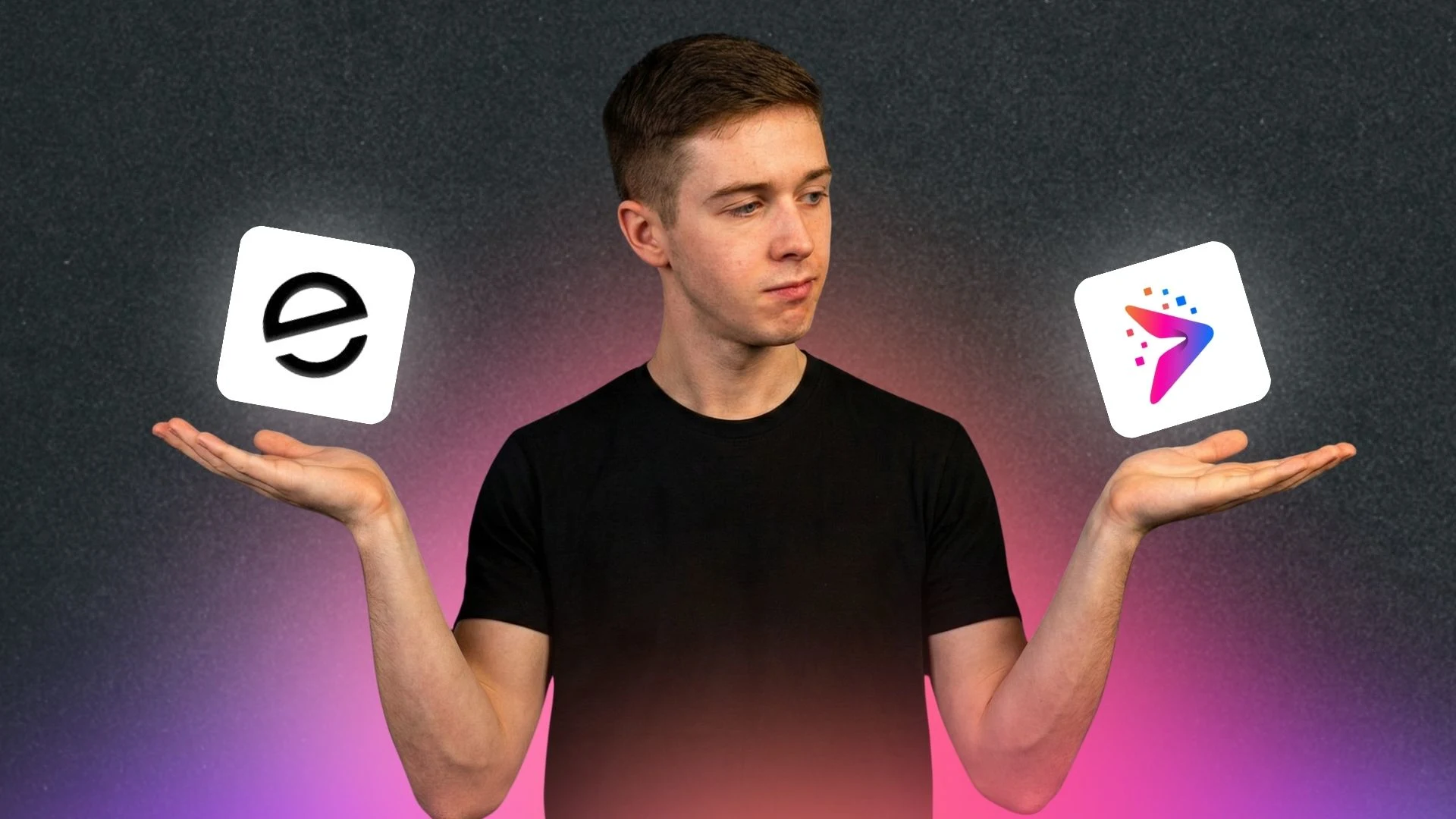
An AI website builder for conferences streamlines the process of creating and managing event websites by automating design and development tasks. It allows organizers to quickly launch professional-looking sites without coding skills, using customizable templates and drag-and-drop tools. This technology saves time and reduces the need for technical expertise, making conference planning more efficient.
The key advantage of an AI conference website builder is its ability to deliver a fully functional, visually appealing, and user-friendly website in minutes, helping organizers attract attendees and manage event details seamlessly. Many platforms also offer added features like built-in SEO, secure hosting, and customer support that enhance the overall event experience.
Launch Your App Today
Ready to launch? Skip the tech stress. Describe, Build, Launch in three simple steps.
BuildBy leveraging AI tools, conference planners can focus more on content and engagement rather than technical hurdles. This makes AI website builders a practical choice for events of all sizes, ensuring a professional online presence with minimal effort.
Understanding AI Website Builders for Conferences
AI website builders designed for conferences simplify the creation process by automating design, hosting, and content management. They offer tools tailored to event needs, ensuring a professional look with no coding required. Scalability and user engagement features support growth and effective event promotion.
What Is an AI Website Builder?
An AI website builder is a software tool that uses artificial intelligence to assist users in designing and launching websites quickly. It automates many tasks like layout selection, content placement, and style adjustments, eliminating the need for coding.
For conference websites, it focuses on event-specific elements such as schedules, speaker profiles, registration forms, and attendee engagement features. Users benefit from zero-code needed interfaces that allow drag-and-drop editing combined with AI-driven suggestions to improve usability and appearance.
Key Features for Conference Organizers
Conference-focused AI website builders typically include:
- Event Scheduling: Dynamic calendars and session timelines customized by AI.
- Registration Integration: Seamless signup forms with payment processing.
- Scalable Infrastructure: Hosting solutions that accommodate fluctuating traffic.
- Responsive Design: Professional-grade quality ensuring mobile and desktop accessibility.
- AI Content Assistance: Automated copywriting and image suggestions optimized for events.
- Analytics and Reporting: Real-time visitor tracking and engagement metrics.
These features support both small seminars and large-scale conferences, providing organizers with tools to manage logistics and communication efficiently.
Benefits Over Traditional Website Development
AI website builders reduce development time from weeks or months to just hours. They eliminate the technical skill barrier through zero-code needed platforms, allowing organizers to control updates without developers.
Cost efficiency is another advantage since there is no need to hire specialized web professionals. The integration of scalable infrastructure ensures sites remain reliable during traffic spikes, common in the days leading to and during an event.
Lastly, AI-driven website creation produces consistent, professional-grade quality with built-in SEO and responsive layouts, enhancing online visibility and attendee experience without additional effort.
How AI Website Builders Work
AI website builders simplify conference website creation by translating user input into technical designs, automating the build, and providing customization options. They combine natural language processing, design automation, and one-click development to speed up the process while maintaining professionalism.
Natural Language Input for App Creation
Users start by describing their conference website idea in natural language, such as specifying event dates, session types, or registration needs. This input guides the AI to understand the website’s purpose and essential components without requiring coding knowledge.
The system parses the description to extract key features, like schedules, speaker profiles, or ticketing options. This approach makes it accessible for organizers to communicate goals clearly and reduces the gap between concept and execution.
Natural language input acts as the foundation for the site, prompting the AI to generate structures tailored to user needs. It avoids manual setup, enabling faster project initiation.
AI-Generated Blueprints and Design
Once the idea is clear, the AI constructs an initial blueprint outlining the website’s layout and content organization. This blueprint represents a structural plan, including pages, navigation flow, and essential elements like registration forms and agenda sections.
Design elements such as color schemes, fonts, and images are chosen either automatically or with user input. Most AI builders offer customization options so users can refine the style or branding.
The blueprint balances usability with aesthetics and adapts to conference-specific needs, ensuring the site aligns with event goals. This automated design phase removes guesswork and accelerates development.
Automated App Building Process
With the blueprint ready, the builder performs a one-click build that automatically generates the complete conference website. This process handles coding, layout assembly, content population, and integration of necessary functionalities like payment gateways or email marketing.
Advanced platforms may provide expert backup for complex customizations or troubleshooting. This hybrid approach combines AI efficiency with human expertise when needed.
The automated build reduces errors and technical obstacles, letting users focus on content and promotion. Hosting and scaling features are often included, supporting reliable performance during high traffic.
| Step | Description |
| Describe Your Idea | Express conference needs using simple language |
| AI-Generated Blueprint | Automatic layout and content plan creation |
| One-Click Build | Fully automated site construction |
| Expert Backup | Optional support for customization or issues |
Imagine.bo: A Closer Look
Imagine.bo provides a no-code platform designed to simplify app and website creation through a chat interface. It offers clear pricing options and support tailored to different user groups, making it accessible for founders, solo makers, and agencies alike.
Platform Overview
Imagine.bo uses AI to let users build software and websites without coding or technical teams. Users simply describe their ideas in plain language, and the platform translates that into functional apps or sites. This speeds up the development process, allowing projects to launch within days instead of weeks.
The interface is chat-based, reducing complexity and eliminating traditional design tools. It supports customization while maintaining ease of use. Hosting and scalability are part of the package, ensuring reliable performance as traffic grows.
Unique Selling Points
The key advantages of Imagine.bo include:
- No-Code Chat Interaction: Build apps by describing your idea in simple language.
- Fast Deployment: Launch scalable, production-ready products within days.
- Expert Support: Access to guidance helps users overcome technical challenges.
- Clear Pricing: Transparent cost structures suit different budgets and project sizes.
- Flexibility: Customizable features without sacrificing simplicity.
This combination caters to users needing efficient solutions especially when time and technical resources are limited.
Who Can Benefit Most
Imagine.bo serves a wide range of creators but is especially suitable for:
- Founders: Launch MVPs quickly to validate business ideas without heavy investment in development.
- Solo Makers: Build professional, scalable applications alone without coding skills.
- Agencies: Use Imagine.bo to speed up client projects, reduce development overhead, and deliver tailored software efficiently.
The platform is ideal for those who value speed, clarity, and ease of use, enabling individuals and organizations to bring ideas to life without technical roadblocks.
Key Benefits for Conference Websites
AI website builders for conferences deliver fast, secure, and scalable solutions tailored to event needs. They enable quick deployment of functional sites, ensure compliance with data standards, and support high visitor volumes with reliable infrastructure.
Rapid MVP Development
AI-driven builders allow organizers to launch a minimum viable product (MVP) rapidly. They automate content creation, design layout, and essential feature setup, enabling a functional conference website within hours or days. This is crucial when timelines are tight.
Templates and drag-and-drop editors remove the need for coding skills. Users can add schedules, speaker profiles, ticketing, and venue details quickly. Early launch also lets organizers collect attendee feedback and iterate the site before the event.
This speed is supported by integrations with platforms like Vercel and AWS, which provide fast deployment environments. Quick MVP development reduces upfront costs and accelerates marketing efforts.
Security and Compliance
Conference websites handle sensitive attendee data such as registration details and payment information. AI builders often come with built-in compliance support for standards like GDPR and SOC2, protecting user privacy and meeting legal requirements.
They deploy on secure cloud providers such as Google Cloud Platform (GCP) and AWS, offering encrypted data storage and access controls. These platforms also monitor for vulnerabilities and ensure data backups.
Organizers benefit from automated security updates and protocols, reducing risks of breaches. This level of protection is essential to maintain trust and comply with international data regulations during event registration and communications.
Seamless Scaling for High Traffic
Conferences can experience unpredictable spikes in website traffic, especially near registration deadlines or keynote announcements. AI-built conference sites leverage cloud infrastructures on providers like AWS and GCP for automatic scaling.
This capability adjusts server resources dynamically based on visitor load, preventing downtime and slow page loads. Scalability is often supported by content delivery networks (CDNs) to ensure fast access globally.
Scalable architectures help manage simultaneous live streams, interactive schedules, and large file downloads without performance degradation. Organizers can confidently promote their event knowing the site will handle peak demand efficiently.
Integration with Conference Tools and Platforms
Effective integration is essential for a conference website to function smoothly. This involves linking registration systems and embedding event schedules, ensuring a seamless user experience and improved operational efficiency.
Connecting Registration Systems
Integrating registration systems allows attendees to sign up and manage their participation directly on the conference website. This connection often supports real-time updates of attendee data, reducing manual entry and errors.
A good integration syncs with popular platforms like Eventbrite or Cvent, enabling automated confirmation emails, payment processing, and attendee tracking. It also helps organizers access analytics dashboards for monitoring registration trends and demographics in real time.
Such integration simplifies workflows by centralizing attendee information, improving communication, and enhancing user convenience.
Embedding Event Schedules
Embedding event schedules into the conference website provides attendees with easy access to session times, locations, and speaker information. Dynamic schedules can be updated instantly, reflecting any last-minute changes without confusion.
This feature supports interactive elements such as personalized agendas and calendar syncing, boosting engagement. It can also link with virtual meeting platforms for hybrid or fully virtual events.
Embedding schedules directly on the site allows organizers to use analytics dashboards to track session popularity and attendance patterns, helping optimize future events.
Getting Started with AI Website Builders for Conferences
Setting up an AI website builder for a conference involves clear steps that guide users from initial interest to launch. Access opportunities like beta programs can give early experience, while step-by-step instructions ensure a smooth website creation process. Expert resources help resolve challenges and optimize the site for better attendee engagement.
Joining Beta Programs and Waitlists
Many AI conference website builders offer beta programs or waitlists for early users. Joining these allows access to the latest features before general release. Beta programs often provide direct feedback channels, helping users influence product development.
Participation usually requires signing up on the provider’s site, sometimes providing event details or business information. Early access can mean limited functionality but faster setup for those ready to adapt. Waitlists ensure priority when new spots or tools become available.
Beta participants should prepare for occasional bugs and updates. The tradeoff is early experience with cutting-edge tools and personal support from the development team.
Step-by-Step Setup Guide
Starting with an AI builder typically begins with a guided questionnaire about the conference’s purpose and needs. This includes input on schedule, speakers, branding colors, and content types.
The AI then generates a draft website template, complete with event pages, speaker profiles, registration forms, and basic SEO settings. Users customize the design and content using intuitive drag-and-drop interfaces or pre-made blocks.
Final steps involve linking payment or ticketing systems and testing interactive features. The entire process usually takes a few hours, significantly less than traditional development. Regular preview options help ensure accuracy and visual appeal before publishing.
Expert Support and Resources
Most AI builders provide expert support through chat, email, or dedicated account managers. This help assists with technical issues and best practices for conference-specific content.
Documentation often includes step-by-step tutorials, video walkthroughs, and FAQ sections targeting common conference website needs. Community forums or webinars offer additional peer support and real-time advice.
For complex questions, consulting with experts can improve site navigation, load speed, and user experience. This support is vital for maximizing attendee engagement and achieving event goals.
Choosing the Right AI Website Builder for Your Conference Needs
Selecting an AI website builder for a conference requires careful attention to essential features, costs, and available support. Organizers should prioritize tools that streamline event management, fit their budget, and offer reliable assistance during setup and live phases.
Evaluating Core Features
The AI website builder must support key conference elements such as agenda scheduling, speaker profiles, registration forms, and live streaming integrations. Automation in content layout and customization options for branding help create a professional and cohesive event site.
Built-in SEO capabilities are important to improve event visibility online, while quick AI-generated page creation saves valuable time. The ability to handle ticket sales and attendee management directly on the platform adds convenience.
It’s beneficial if the builder allows for easy updates, as conference details often evolve. Some builders provide templates specialized for events, which can simplify the design process and ensure all necessary sections are covered.
Comparing Pricing and Plans
Transparent pricing is crucial to avoid unexpected costs. Many AI website builders offer paid plans starting around $19 per user per month, which is reasonable for features needed in professional conference sites.
Options that include a free beta version can be useful to test the functionalities before committing financially. Organizers should check if the pricing structure scales based on the number of attendees or website traffic.
Hidden fees such as transaction charges for ticket sales or additional costs for premium integrations should be clearly outlined. Comparing what each plan includes — like storage limits, bandwidth, or access to AI tools — helps ensure the chosen builder matches the conference budget.
Assessing Technical Support
Reliable technical support impacts the smooth running of a conference website. Organizers should prioritize builders that offer multiple support channels such as live chat, email, and phone.
Availability during critical pre-event and live event times is important. Builders that provide onboarding assistance or dedicated account managers streamline setup and troubleshoot faster.
Community forums and detailed knowledge bases are added benefits when direct support is limited. Evaluating response times and support quality during the trial or beta phase can reveal how well the provider handles urgent issues.
Future Trends in AI Website Builders for Conferences
AI website builders for conferences are evolving with features that focus on automation, customization, and integration with event management tools. Enhancements aim to improve user experience and streamline organizational processes.
Expected Innovations
AI will increasingly use natural language processing to generate and update content dynamically, tailoring agendas, speaker bios, and session details in real time. Advanced personalization engines will recommend sessions and networking opportunities based on attendee profiles and behavior.
Integration of live data feeds will allow websites to display real-time event updates, such as schedule changes or speaker announcements. Visual AI tools will enable users to customize designs with minimal effort while ensuring brand consistency.
Automation will expand to backend functions like ticketing, registration, and analytics, with AI handling queries via chatbots and voice assistants, reducing manual workloads.
Potential Impact on Event Management
These AI capabilities reduce time and effort for event planners by automating routine web maintenance and communications. Real-time content updates minimize errors and delays, improving attendee satisfaction.
Personalized content and recommendations can increase engagement by directing attendees to relevant sessions and networking matches. AI-driven analytics provide insights into user behavior, enabling data-based decisions for future events.
Automated integration with external platforms—such as CRM and marketing tools—improves coordination across teams. This leads to smoother operations and a more cohesive attendee experience.
Launch Your App Today
Ready to launch? Skip the tech stress. Describe, Build, Launch in three simple steps.
Build





